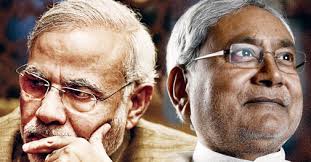
Congress general secretary Ajay Maken asked why the party should follow BJP's "failed" model of "PM-in-waiting".
"BJP only gives prime ministerial candidates while the Congress gives strong PMs to the country. During the last two general elections, there were only candidates who came forward from BJP, the PM came from Congress and UPA only," Union minister Manish Tewari told reporters in Ludhiana.
His remarks came after BJP led by Modi took a dig at Congress for not naming Rahul as the Prime Ministerial candidate, saying Sonia Gandhi wanted to save her son from being "sacrificed" politically in view of "imminent" defeat in the Lok Sabha polls.
Modi, who was once a tea vendor, also hit at out at the 'chai wala' barbs at him by Congress leaders accusing them of "feudal mindset".
Congress leader Mani Shankar Aiyar had mocked Modi's prime ministerial ambitions saying he will never attain his goal in this century and a tea stall will be identified for him at the AICC venue.
Addressing the party's National Council here, Modi said that "those born in an aristocratic family" feel below their dignity to contest against a tea vendor coming from a backward community.
While the Congress yesterday distanced itself from such remarks, JD(U) leader K C Tyagi said that a person selling "poisonous tea" through Gujarat to the country should not become the PM.
"A tea boy can become a PM, but a man selling poisonous tea should not become one. Narendra Modi through Gujarat has sold poisonous tea to the country. Persons selling tea are good people, persons selling poisonous tea are bad people," Tyagi said.
External Affairs Minister Salman Khurshid too reacted strongly.
"Modi won't decide who will be sacrificed. We are here to sacrifice for our party, for our ideology, for our country, for our youth. What is his problem? Is he ready to make sacrifices?," the Congress leader told reporters on the sidelines of Jaipur Literature Festival.
Tewari said he was confident that Congress will yet again get blessings of the people in the forthcoming Lok Sabha polls and give the country a strong Prime Minister.
The Trinamool Congress attacked both Congress and BJP saying they are two sides of the same coin.
"In the next Lok Sabha elections, people will vote for a viable alternative. It has already happened in the Delhi Assembly elections. We feel the prospects of a federal front are very bright in the next general elections," Trinamool Congress MP Saugata Roy said in Kolkata.






Comments
Add new comment